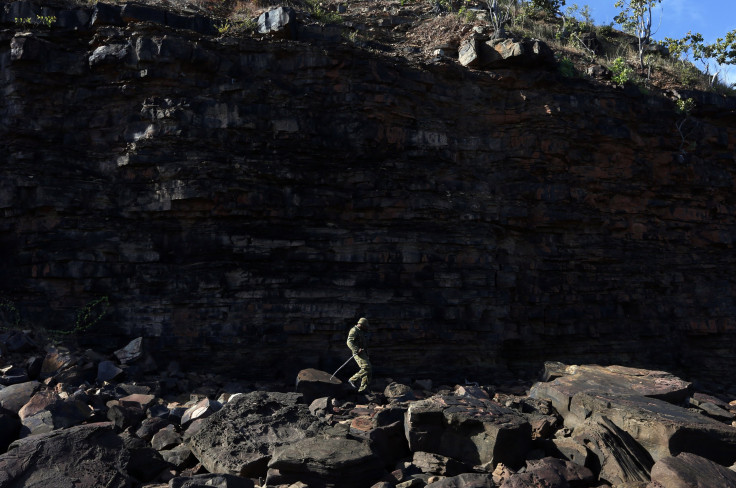OM Manganese Fined $150,000 For Damaging Sacred Two Women Sitting Down Aboriginal Site In Australia

One mining company’s desecration of an aboriginal site in Australia has resulted in over $100,000 in fines.
According to a report from ABC Friday, the mining firm OM Manganese Ltd has been found guilty on two counts of destroying a section of Two Women Sitting Down, a sacred site located near the Bootu Creek Manganese mine in the northern region of Australia. The damage, which was allegedly caused in July 2011 during an explosive blast used to break ground, resulted in $150,000 (USD) in fines after ignoring a warning in 2004 to avoid the nearby sacred site.
"We never had any intention to cause damage or disrespect or hurt throughout the mining process," said Peter Toth, CEO of OM Holdings Ltd, a parent company of OM Manganese. "I would like to personally, unreservedly and sincerely apologize to the traditional owners for the hurt that we've caused throughout this incident," he said.
Cracks were reportedly found near the Two Women Sitting Down aboriginal site in 2011, the same year OM Manganese used explosives 80 miles from the damaged location. The company pleaded guilty to causing damage at the site but pled not guilty to desecration resulting in the Darwin Magistrates Court not ordering OM Manganese to pay the maximum penalty fine of $400,000 USD. Despite the charges brought against them, the West Perth-based company’s website claims they aim to bring “significant and meaningful change to the lives of all stakeholders” while also maintaining “environmental and social responsibility.”
Two Women Sitting Down is majorly associated with the indigenous Kunapa people in Australia who according to a report from BBC, believe the sacred land is a living, breathing, “mother of creation.” “It will always remain a sacred site to us, but it has been ruined and we don't know what to do because this has never happened to the old people,” said Kunapa community representative Gina Smith. "It has been there for thousands of years as part of our culture and our story."
© Copyright IBTimes 2024. All rights reserved.












